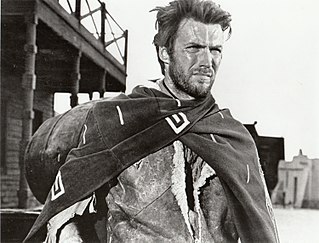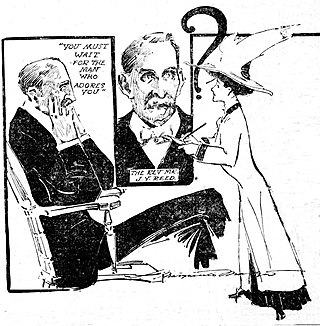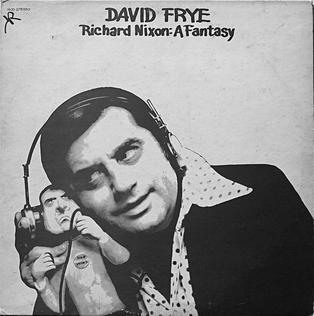World history or global history as a field of historical study examines history from a global perspective. It emerged centuries ago; leading practitioners have included Voltaire (1694–1778), Hegel (1770–1831), Karl Marx (1818–1883), Oswald Spengler (1880–1936), and Arnold J. Toynbee (1889–1975). The field became much more active in the late 20th century. It is not to be confused with comparative history, which, like world history, deals with the history of multiple cultures and nations, but does not do so on a global scale. World history looks for common patterns that emerge across all cultures. World historians use a thematic approach, with two major focal points: integration and difference.

The 1970s was a decade that began on January 1, 1970, and ended on December 31, 1979.

The Pulitzer Prize for History, administered by Columbia University, is one of the seven American Pulitzer Prizes that are annually awarded for Letters, Drama, and Music. It has been presented since 1917 for a distinguished book about the history of the United States. Thus it is one of the original Pulitzers, for the program was inaugurated in 1917 with seven prizes, four of which were awarded that year. The Pulitzer Prize program has also recognized some historical work with its Biography prize, from 1917, and its General Non-Fiction prize, from 1962.

McGeorge "Mac" Bundy was an American academic who served as the U.S. National Security Advisor to Presidents John F. Kennedy and Lyndon B. Johnson from 1961 through 1966. He was president of the Ford Foundation from 1966 through 1979. Despite his career as a foreign-policy intellectual, educator, and philanthropist, he is best remembered as one of the chief architects of the United States' escalation of the Vietnam War during the Kennedy and Johnson administrations.
A roots revival is a trend which includes young performers popularizing the traditional musical styles of their ancestors. Often, roots revivals include an addition of newly composed songs with socially and politically aware lyrics, as well as a general modernization of the folk sound.

An antihero or antiheroine is a main character in a story who may lack conventional heroic qualities and attributes, such as idealism, courage, and morality. Although antiheroes may sometimes perform actions that most of the audience considers morally correct, their reasons for doing so may not align with the audience's morality. An antihero typically exhibits one of the "Dark Triad" personality traits, which include narcissism, psychopathy, and Machiavellianism.

David Halberstam was an American writer, journalist, and historian, known for his work on the Vietnam War, politics, history, the Civil Rights Movement, business, media, American culture, Korean War, and later, sports journalism. He won a Pulitzer Prize for International Reporting in 1964. Halberstam was killed in a car crash in 2007, while doing research for a book.
The expression military–industrial complex (MIC) describes the relationship between a country's military and the defense industry that supplies it, seen together as a vested interest which influences public policy. A driving factor behind the relationship between the military and the defense-minded corporations is that both sides benefit—one side from obtaining war weapons, and the other from being paid to supply them. The term is most often used in reference to the system behind the armed forces of the United States, where the relationship is most prevalent due to close links among defense contractors, the Pentagon, and politicians. The expression gained popularity after a warning of the relationship's detrimental effects, in the farewell address of President Dwight D. Eisenhower on January 17, 1961.

For the United States, 1945–1964 was a time of high economic growth and general prosperity. It was also a time of confrontation as the capitalist United States and its allies politically opposed the Soviet Union and other communist states; the Cold War had begun. African Americans united and organized, and a triumph of the civil rights movement ended Jim Crow segregation in the Southern United States. Further laws were passed that made discrimination illegal and provided federal oversight to guarantee voting rights.

Young Americans for Freedom (YAF) is a conservative youth activism organization that was founded in 1960 as a coalition between traditional conservatives and libertarians on American college campuses. It is a 501(c)(3) nonprofit organization and the chapter affiliate of Young America's Foundation. The purposes of YAF are to advocate public policies consistent with the Sharon Statement, which was adopted by young conservatives at a meeting at the home of William F. Buckley in Sharon, Connecticut, on September 11, 1960.

The Best and the Brightest (1972) is an account by journalist David Halberstam of the origins of the Vietnam War published by Random House. The focus of the book is on the foreign policy crafted by academics and intellectuals who were in President John F. Kennedy's administration, and the consequences of those policies in Vietnam. The title referred to Kennedy's "whiz kids"—leaders of industry and academia brought into the administration—whom Halberstam characterized as insisting on "brilliant policies that defied common sense" in Vietnam, often against the advice of career U.S. Department of State employees.

David W. Harvey is a British-born Marxist economic geographer, podcaster, and Distinguished Professor of anthropology and geography at the Graduate Center of the City University of New York (CUNY), though he often claims to prefer the term Marxian. He received his PhD in geography from the University of Cambridge in 1961. Harvey has authored many books and essays that have been prominent in the development of modern geography as a discipline. He is a proponent of the idea of the right to the city.

Music history of the United States includes many styles of folk, popular and classical music. Some of the best-known genres of American music are rhythm and blues, jazz, rock and roll, rock, soul, hip hop, pop, and country. The history began with the Native Americans, the first people to populate North America.

Journalism in the United States began as a "humble" affair and became a political force in the campaign for American independence. Following independence, the first amendment to the U.S. Constitution guaranteed freedom of the press and freedom of speech. The American press grew rapidly following the American Revolution. The press became a key support element to the country's political parties, but also for organized religious institutions.

A Madonna wannabe, or Madonnabe, is a person who dresses or acts like American singer Madonna. When she emerged into stardom in the mid-1980s, an unusually high number of women, particularly young women and girls, began to dress and do their hair and makeup in the style that Madonna displayed in public. The term was popularized by writer John Skow in a May 1985 Time cover story on the singer. Numerous sociologists and other academics commented on the Madonna influence in her wannabes.

David Shapiro was an American comedian, specializing in comic imitations of famous political figures, most of whom were based on notable Americans, including former U.S. Presidents Lyndon B. Johnson and Richard Nixon, Vice Presidents Hubert Humphrey, Spiro Agnew, and Nelson Rockefeller, and Senator Bobby Kennedy, as well as film celebrities, e.g., George C. Scott, Henry Fonda, Kirk Douglas, Robert Mitchum, Jack Nicholson, Jack Palance and Rod Steiger, and media figures, e.g., William F. Buckley Jr. and Larry King.

The post–World War II economic expansion, also known as the postwar economic boom or the Golden Age of Capitalism, was a broad period of worldwide economic expansion beginning after World War II and ending with the 1973–1975 recession. The United States, the Soviet Union and Western European and East Asian countries in particular experienced unusually high and sustained growth, together with full employment.
The quagmire theory explains the cause of the United States involvement in the Vietnam War. The quagmire theory suggests that American leaders had unintentionally and mistakenly led the country into the Vietnam War. The theory is categorized as an "orthodox" interpretation of the Vietnam War.
Mainframe computers are computers used primarily by businesses and academic institutions for large-scale processes. Before personal computers, first termed microcomputers, became widely available to the general public in the 1970s, the computing industry was composed of mainframe computers and the relatively smaller and cheaper minicomputer variant. During the mid to late 1960s, many early video games were programmed on these computers. Developed prior to the rise of the commercial video game industry in the early 1970s, these early mainframe games were generally written by students or employees at large corporations in a machine or assembly language that could only be understood by the specific machine or computer type they were developed on. While many of these games were lost as older computers were discontinued, some of them were ported to high-level computer languages like BASIC, had expanded versions later released for personal computers, or were recreated for bulletin board systems years later, thus influencing future games and developers.
Frye Gaillard is an American historian and author.














